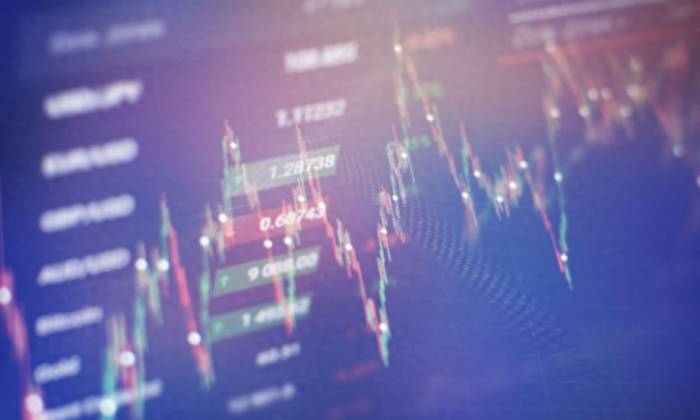Yen: No Surprises for Now?
Japan's newly appointed Prime Minister, Shinzo Abe, stated on Wednesday that, considering the current economic situation, Japan may not be suitable for further interest rate hikes too quickly. This statement has alleviated the pressure on the yen to appreciate, causing the yen's exchange rate against the US dollar to fall back to the 146 level. This is also the largest single-day drop for the yen in two years.
Following the Prime Minister's reassurance to the market regarding the potential interest rate hike of the yen, the Institute for Supply Management's Purchasing Managers' Index (PMI) in the United States also exceeded expectations, reflecting a still positive outlook for the US economy. This has driven the US dollar exchange rate, with the US Dollar Index rising above the 101 level. In contrast, the pressure on the yen to appreciate against the US dollar has been alleviated, which is beneficial for the outlook of export stocks.
In terms of Japanese stocks, there was a slight rebound, with the Nikkei 225 index closing up by 0.22%. Nippon Steel (5401.T), which plans to acquire US Steel (X.US), rose by 0.40%. Fast Retailing (9983.T), the parent company of Uniqlo, increased by 1.48%, and Mitsubishi Heavy Industries (7011.T), which has seen a cumulative increase of 173% this year, rose by 0.98%.
Looking at the full-year performance, the Nikkei 225 has累计 a gain of 15.45%, higher than the Dow Jones Industrial Average (DJI.US) at 11.47%, and also better than the cumulative gain of 13.43% in the nearby emerging market of India's SENSEX30.
Advertisement
Prior to this, expectations of interest rate hikes in Japan, a weakening US economy, and the Federal Reserve's rate cut expectations led domestic Japanese investors to start withdrawing from overseas capital markets and flowing back.
Bloomberg data shows that in the first eight months of this year, Japanese investors, for the first time in fourteen years, have net increased their holdings of Japanese bonds by 28 trillion yen (approximately $192 billion), while also reducing their foreign bond purchases by nearly half.
It is important to note that Japanese investors are one of the most active investment groups in the global fixed income and equity markets. Japan is not only the largest holder of US debt but also holds billions of dollars in stocks from Singapore to the Netherlands to the United States. Their withdrawal from these markets has an impact on stock markets around the world.
The withdrawal of Japanese investors from these markets is due to the expectation of the Bank of Japan raising interest rates, which has led to a significant increase in costs.Taking Japan's largest agricultural and forestry bank, Norinchukin, as an example, a significant portion of its 600 trillion yen investment portfolio consists of European and American government bonds. After the unexpected interest rate hike by the Bank of Japan, its financing pressure has increased dramatically, forcing it to sell about 100 trillion yen worth of overseas assets.
This is the logic behind the repatriation of Japanese funds.
Therefore, the dovish rhetoric from the newly appointed prime minister has, to some extent, reassured the capital market, allowing Japanese investors with a large amount of foreign assets to breathe a temporary sigh of relief.
However, due to the reduced concerns about the yen's interest rate hike expectations, carry trades have made a comeback. If Japan's monetary policy becomes uncertain again, the history of carry trade unwinding in August may repeat itself, potentially increasing the volatility risk in the global capital market.
The continuous record highs in the current US stock market are mainly due to the surge in AI concept stocks, such as NVIDIA (NVDA.US) and TSMC (TSM.US). However, these stocks are at high levels, and pressure is gradually emerging. NVIDIA's Huang Renxun recently pointed out that its AI new product, Blackwell, has been sought after by the market, with astonishing demand, and Meta (META.US) and OpenAI are among its customers. However, the capacity bottleneck is a major problem. TSMC has to deal with the chip supply for the new iPhone and also has to make room for NVIDIA. Moreover, NVIDIA's downstream customers are considering developing their own chips due to the high pricing of AI chips, such as Tesla (TSLA.US). If AI's profit growth ultimately fails to keep up with market expectations, NVIDIA and the US stock market will face an adjustment.

In other words, the high-level risk in the US stock market is accumulating, and these carry funds may consider turning to markets with relatively lower downside risks, such as the Hong Kong and A-share markets.
A series of favorable policies in China recently may be beneficial for the transformation of its capital market and attracting capital inflows. During the National Day holiday, the Hong Kong stock market surged, with technology stocks, securities stocks, real estate stocks, and chip stocks all showing significant gains.
For example, SMIC (00981.HK) has accumulated a 53.82% increase in the last five trading days, but for the whole year, its cumulative increase is only 37.71%, far behind its peer TSMC, which has accumulated a 3.93% decline in the last five trading days but has a cumulative increase of 74.45% for the year. SMIC may mainly target the mass market, rather than the highest-end chip market. As the consumer electronics market recovers, SMIC also has growth potential and its own niche market advantages.
post your comment